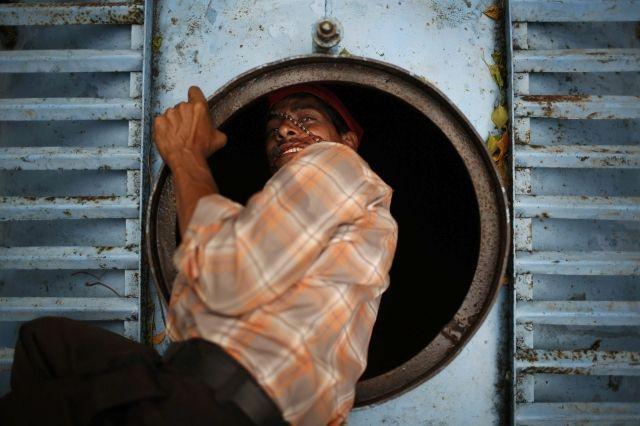India To Roll Out World’s Biggest Direct Cash Transfer Scheme For The Poor

India’s ruling Congress party Tuesday proposed a nationwide scheme to transfer cash directly to the underprivileged, replacing the government subsidies on food, fuel and fertilizers.
With the general elections due in 2014, the cash transfer scheme, planned to be implemented within the next five years, was accompanied by a poll-ready slogan: “Your money, your hand.”
The central government spent a massive Rs 2.16 lakh crore ($380 billion), about 2.41 percent of India's GDP in 2011-12, on subsidies, according to a Times of India report. However, India’s existing Public Distribution System (PDS) for rationing of food and non-food items has long been criticized for being corrupt and ineffective in alleviating poverty.
The government plans to cover the target BPL (Below Poverty Line) families and deposit Rs 3.2 lakh crore ($ 570 billion) per year in the bank accounts of 100 million poor families by 2014. The scheme is supposed to benefit roughly 200 million voters, considering every family on an average has two adult members.
The scheme is dubbed as “fiscal-neutral” and will not burden the exchequer as the government spending on subsidies has been shooting up with a falling rupee and rising international crude prices.
“We think this is a game changer,” said Finance Minister P. Chidambaram who unveiled the plan alongside Rural Development Minister Jairam Ramesh at the Congress party headquarters in New Delhi. “We think people will appreciate what the government has done.”
“The party is very proud that the government has decided to launch the scheme,” Chidambaram said, adding that the plan would ultimately eliminate many of the fraudulent claimants who receive benefits and save the cash-strapped government of “considerable” amounts of money.
The first phase of the transfers will begin Jan. 1 in 51 districts — less than a tenth of the country — and will start by paying out scholarship grants and pensions. Food and fuel subsidies will be replaced later.
The proposal is to transfer money directly into the bank accounts of people who are eligible for LPG and kerosene subsidies, pensions, scholarships and payments on employment guarantee scheme as well as benefits under other government welfare programs. This money can then be used to buy goods and services from the market at regular prices.
However, a criticism of the scheme suggests that men in the families are likely to have direct access to the bank accounts and may squander the money instead of using it for the intended purposes.
Another disadvantage is that only those who own the Aadhar cards, the government identity cards issued to all residents of India, will be paid in cash through bank accounts. But only 210 million of the 1.2 billion people have received the Aadhar cards so far. Prime Minister Manmohan Singh said in October that more than 600 million, or about half of the country, would receive the Aadhar cards by 2014.
Electronic Benefit Transfer (EBT) has already begun on a pilot basis in the states of Andhra Pradesh, Chhattisgarh, Punjab, Rajasthan, Tamil Nadu, West Bengal, Karnataka, Pondicherry and Sikkim, according to a report in India Today. However, most of the BPL families don’t have bank accounts or live in remote areas where there are no banks.
When implemented, India’s cash transfer scheme will be the biggest of its kind in the world though several Latin American countries do have conditional schemes to transfer money to women for children's education and preventive healthcare.
© Copyright IBTimes 2024. All rights reserved.






















